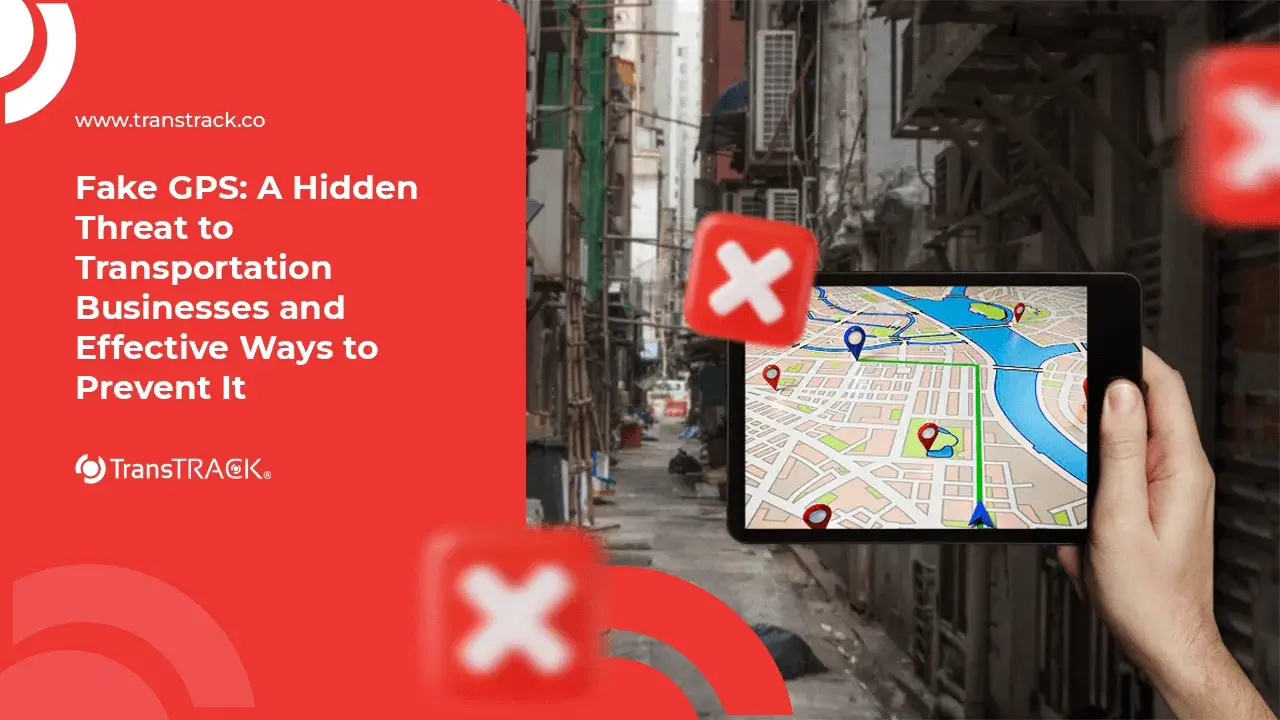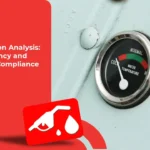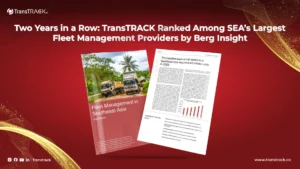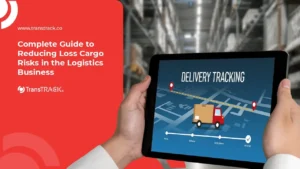Fake GPS: A Hidden Threat to Transportation Businesses and Effective Ways to Prevent It
Posted on October 20, 2025 by Nur Wachda Mihmidati

In the digital age, the use of GPS-based vehicle tracking systems is a crucial element in maintaining fleet efficiency and security. However, the emergence of fake GPS, or location spoofing, poses a serious threat that can disrupt operational data and undermine business confidence. TransTRACK This will explain what fake GPS is, why its use is risky for companies, and how modern telematics solutions can help prevent location manipulation effectively.
What is Fake GPS?
Fake GPS is an application or tool used to fake the location of a GPS device to make it appear to be located elsewhere. In the transportation and logistics business, fake GPS is often used by drivers or certain parties to manipulate vehicle position data. This practice can have serious impacts on data accuracy, operational efficiency, and even a company’s reputation.
Using fake GPS may seem trivial, but the implications can be far-reaching. When tracking systems no longer display actual locations, companies lose control of their fleets. This opens up the possibility of operational irregularities and potential financial losses.
Why Drivers Use Fake GPS
Many drivers use fake GPS for various purposes, from manipulating their location to evading surveillance. Without robust security systems, this practice is difficult to detect and can be detrimental to the company in the long run. Here are some common reasons why drivers use fake GPS in the field:
Want to manipulate the position of the vehicle to make it look like it is working
Some drivers use fake GPS to appear active in the field even though the vehicle is not actually moving. This is often done to falsify work hours or delivery activities. As a result, performance data becomes inaccurate and operational reports are difficult to trust.
Avoiding corporate oversight
Fake GPS is also used to evade monitoring by company tracking systems. By manipulating location, drivers can disable tracking without being detected by the fleet management system. This significantly compromises company control over the fleet.
Testing apps without understanding the risks
Some drivers also use fake GPS apps for experimentation, unaware of the risks. However, using these apps can compromise the integrity of GPS data and cause errors in logistics reports.
Lack of robust security and GPS monitoring systems
Another factor contributing to the use of fake GPS is the weak security systems on tracking devices. Without a signal manipulation detection system, companies have difficulty distinguishing between real and fake locations.
Impact of Using Fake GPS
The use of fake GPS not only affects location data but also threatens the entire operational system. When GPS data is inaccurate, analysis, reporting, and strategic decision-making processes are misguided. Here are some of the real-world impacts that fake GPS use can have on the transportation and logistics industry:
Vehicle tracking data becomes inaccurate
Fake GPS causes fleet management systems to record false locations. This disrupts real-time vehicle position reporting and can lead to logistical errors in deliveries.
The risk of asset loss increases
When vehicle locations cannot be accurately tracked, the risk of theft or asset loss increases. Companies cannot know the exact location of vehicles carrying valuable goods.
Decreased productivity due to false travel time reports
Trip data manipulated by fake GPS makes travel times appear shorter or more efficient than they actually are. Consequently, driver performance analysis is invalid.
Loss of management confidence in fleet data
If management recognizes a discrepancy between reports and reality, confidence in fleet data will decline. This can hinder data-driven decision-making.
Business Risks Due to the Use of Fake GPS
Besides impacting daily operations, fake GPS also poses significant risks to long-term business strategies. Inaccurate data makes it difficult for companies to assess fleet performance, fuel efficiency, and delivery route effectiveness. Some of the business risks that can arise from the use of fake GPS include:
Manipulation of work reports and mileage
Fake GPS allows drivers to alter trip data to appear more efficient. This can lead to inaccurate calculations of fuel costs and performance bonuses.
Loss of visibility of vehicle position
Companies lose the ability to monitor vehicle positions in real time, making it difficult to monitor routes and ensure driver safety.
Increased operational costs due to invalid data
When GPS data is unreliable, companies must incur additional costs for manual verification and field inspections. This, in turn, increases total operational costs.
Disruptions to data-driven decision making
Strategic decisions based on fleet data will be inaccurate due to the manipulation of data by fake GPS. As a result, logistics strategies can be misguided and reduce efficiency.
Impact on Company Operations and Reputation
Fake GPS not only causes technical and financial losses but also impacts a business’s reputation. Clients, partners, and consumers will lose trust if deliveries are delayed or tracking data is inaccurate. Here are some of the direct impacts of fake GPS on a company’s operations and reputation:
Clients lose trust due to inaccurate shipping data
When customers receive location information that doesn’t align with reality, their trust in the company decreases. This can reduce customer loyalty in the long run.
Rising fuel costs and delivery times
Fake GPS makes it difficult for companies to optimize routes and fuel consumption. Inaccurate location data leads to longer travel times and increased operational costs.
The potential for internal fraud is difficult to track
Drivers manipulating data using fake GPS can lead to internal fraud. Because the data is invalid, it makes investigating irregularities difficult.
Telematics Solutions to Prevent Fake GPS
To address the issue of fake GPS, companies need to implement an integrated telematics solution. This technology allows GPS data validation using various sensors and advanced monitoring systems. Here are some effective solutions to prevent and detect fake GPS usage in vehicle fleets:
Fleet Management System (FMS) integration: GPS data validation with engine, fuel, and speed sensors
With FMS, GPS data is automatically verified using data from engine and fuel sensors. This ensures that detected locations are valid and correspond to vehicle activity.
Vehicle Tracking System with location authentication system
Modern vehicle tracking systems are equipped with location authentication to prevent signal manipulation. Any changes in coordinates are verified to quickly detect fake GPS signals.
Anti-GPS Spoofing Feature to detect location signal manipulation
This feature automatically blocks suspicious signals or signals from fake GPS apps, allowing the system to continue displaying the vehicle’s true location.
Real-time monitoring dashboard to monitor fleet movements 24/7
The telematics dashboard displays fleet movements in real time. The system provides notifications if there are location anomalies or discrepancies between sensor and GPS data.
Conclusion
Fake GPS is a serious threat to transportation and logistics businesses. The use of this technology can cause financial losses, reduce productivity, and damage a company’s reputation. To prevent this, companies need to adopt telematics and fleet management systems capable of detecting and verifying location data in real time.
Don’t let fake GPS compromise data accuracy and reduce your fleet’s productivity. With the TransTRACK Fleet Management System, you can monitor vehicles in real time, detect location manipulation (anti-fake GPS), and ensure every trip is transparent and efficient.

FAQ
What is the impact of fake GPS on the logistics business?
Fake GPS makes location data inaccurate, disrupts delivery schedules, and increases operational costs and the risk of asset loss.
How does a fleet management system prevent fake GPS?
Modern fleet management systems have data validation features that combine GPS with engine and fuel sensors, so they can detect false signals from fake GPS.
Can Transtrack detect fake GPS?
Yes, Transtrack has a telematics system with anti-spoofing and location validation features, so it can detect and prevent the use of fake GPS on its fleet.
Why do businesses need to invest in an anti-fake GPS system?
This investment is essential to maintain data accuracy, prevent operational manipulation, and ensure business decisions are based on valid and reliable information.
Recent Post
Topic :
 Bahasa Indonesia
Bahasa Indonesia









